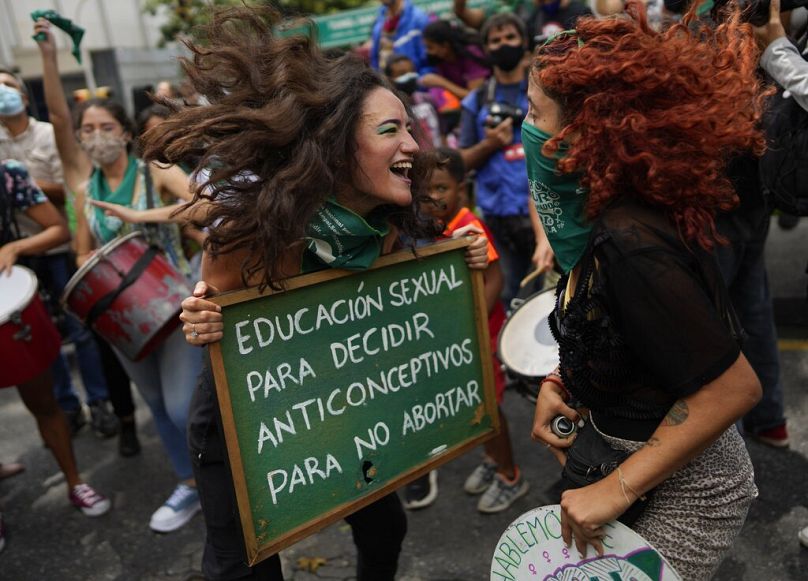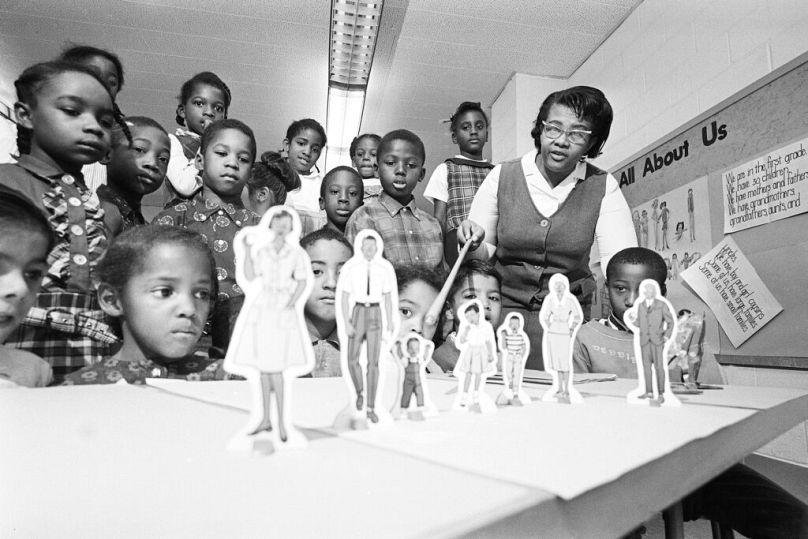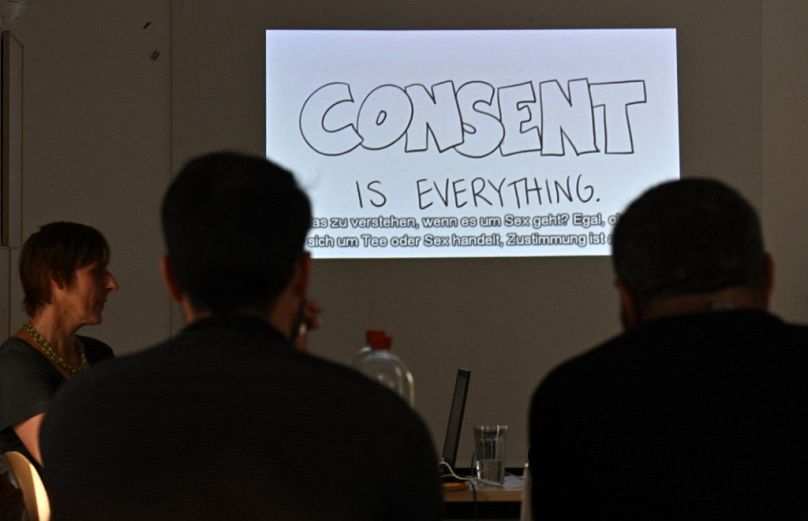Comprehensive sexuality education is central to health and well-being and empowers children and young people with knowledge and skills for a safe, productive, and fulfilling life, Manos Antoninis writes.
In today’s world, children are overwhelmed with confusing and conflicting messages about relationships and love.
 ADVERTISEMENT
ADVERTISEMENT
 ADVERTISEMENT
ADVERTISEMENT
The information they find online is often at odds with information from the media, their peers and voices in their community.
To make sense of the deluge of images and messages, young people are increasingly demanding reliable information and the skills to support their transition from childhood to adulthood.
Every child will one day have life-changing decisions to make about their bodies, relationships, families, and life goals.
Yet, many grow up not having even the basic knowledge and skills to make these decisions carefully and develop and sustain positive, healthy relationships and protect themselves from unsafe situations.
How can we learn more about what we teach our children?
Getting the framework right on sexuality education is important. It can come in multiple forms, from discussions about HIV & AIDS, birth control, and the meaning of consent, to discussions about menstruation, the transition to adulthood, and relationships.
Countries are working it into their curricula in a multitude of different fashions, but there is not enough sharing amongst them on what works well and why.
To support national sexuality education programmes, UNESCO analysed the different approaches taken in 50 countries, featured on the Global Education Monitoring Report’s website.
While many countries have a vision for it, very few of these 50 have a law or a policy that talks about sexuality education.
Assessing each country’s experiences has also shown good practices that others might follow. Argentina, for instance, has a law specifically on comprehensive sexuality education, recognising it as a right in both state and non-state educational establishments.
Times are changing, and curricula are, too
Sweden was the first country to mandate sexuality education for all schools back in 1955.
And, considering comprehensive sexuality education to be an important aspect of the country’s public health strategy, the Swedish education curriculum is revised and updated every decade on the subject to make sure it reflects the changing times and the latest evidence.
Most countries in the world have introduced some elements of sexuality education in their national curriculum.
The subject is mandatory in most countries (68% and 76% of countries for primary and secondary education, respectively).
This reflects the increasing evidence of the positive impact that teaching comprehensively about sexuality, bodies, gender and relationships has on children and young people’s health and well-being, and on larger societal issues like human rights, social justice, and gender equality.
Despite its importance, however, UNESCO’s assessment shows that only half of the 50 countries train teachers on sexuality education before they reach the classroom.
This too, however, is starting to change with the times. For example, a new law is being implemented in the Lao People’s Democratic Republic, where teachers are required to undergo 40 hours of in-service and 40 hours of pre-service training on comprehensive sexuality education (CSE).
At UNESCO, we recommend that countries monitor when and how sexuality education is covered. Zambia, for example, was the first country in Sub-Saharan Africa to include HIV indicators in school monitoring systems and has lessons others could draw from.
It's all about a safe, productive, and fulfilling life
This piece of work comes from our belief that policymakers, teachers and practitioners can learn from each other, especially their peers in other countries.
The world is fast-changing with new challenges related to connectivity and digital risks, leaving countries in need of pulling together to emerge stronger.
Comprehensive sexuality education saves and improves lives. It is central to health and well-being and empowers children and young people with knowledge and skills for a safe, productive, and fulfilling life.
It is worth our time to see how different countries and contexts are putting it in place and where there might be policy lessons we can take forward.
_Manos Antoninis is the Director of the Global Education Monitoring (GEM) Report at UNESCO.
_
_At Euronews, we believe all views matter. Contact us at view@euronews.com to send pitches or submissions and be part of the conversation.
_













